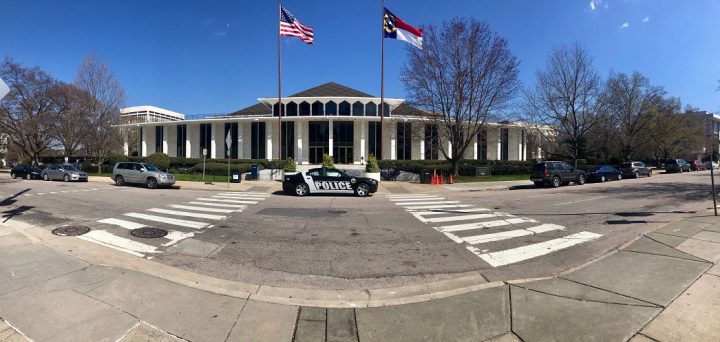
RALEIGH — Funds for buyouts and repairs, bridge loans for local governments, repairs at the University of North Carolina Wilmington, environmental cleanup and a major resiliency study are all part of a disaster recovery package that is expected to be considered this week by the North Carolina General Assembly.
The House was expected to take up the bill Wednesday. If approved, it would move on to the Senate.
Supporter Spotlight
The House Appropriations Committee on Tuesday reviewed the legislation, which duplicates language in the budget passed in July that Gov. Roy Cooper vetoed over concern about teacher pay, the lack of a Medicaid expansion provision and about 10 other areas of disagreement.
Although a veto-override vote has been on the legislative calendar since then, legislative leaders had yet to assemble enough votes for an override. Last month, they opted to start moving less controversial parts of the budget, breaking them out into “mini-budgets.”
The disaster recovery funding, a compromise worked out earlier this year between the House and Senate versions, is the latest in the series.

“They’re the same projects, the same money,” Rep. Chuck McGrady, R-Henderson, a main House budget writer, told the committee Tuesday.
The bill includes more than $112.6 million in funding, mainly in response to Hurricane Florence and Tropical Storm Michael in 2018. It also contains rules on how grants from the state’s disaster recovery funds can be spent and extends expedited Coastal Area Management Act emergency permits through Oct. 21, 2020.
Supporter Spotlight
McGrady said the legislature would take up another round of disaster funding to deal with the aftermath of Hurricane Dorian, but it’s too early to say when that would happen given that the storm was less than a week ago.
“It’s way too early to assess the damages that have occurred,” he said.
The legislature moved quickly after 2016’s Hurricane Matthew, convening to pass legislation more than a month after the storm, but at the time the full range of damage assessments wasn’t ready and follow-up legislation was required.
The new bill includes about $5 million in funding that the administration can use as needed to meet some of the costs incurred during Dorian recovery and any future disasters.
The legislation also earmarks $22.68 million for the Department of Environmental Quality, including $8 million for disaster-related infrastructure and cleanup needs. The total also includes water and wastewater infrastructure, coastal management planning and dam safety, and $11.5 million for the Coastal Storm Damage Mitigation Fund to finance beach and coastal infrastructure repairs.
DEQ would also receive $175,000 to continue the UNC Institute of Marine Sciences’ water quality program testing program that works in partnership with the state Department of Transportation’s Ferry Division.
The bill sets aside $27,868,000 for more than a dozen targeted appropriations from the state disaster recovery fund set up after the storms. They include the following:
- $68,000 to Morehead City for the renovation and dredging of Pelletier Creek.
- $300,000 to the Bladen County Kelly Dike District for engineering and planning for repairs to Kelly Dike, which spans both Bladen and Pender counties.
- $500,000 to Pender County to repair damage to the county courthouse caused by Hurricane Florence.
- $1 million to Elm City for disaster recovery projects.
- $3.3 million to Carteret County to support the Bogue Sound Project that involves 74 acres, 20 acres of which is undeveloped waterfront, that the Marine Corps had sought for more than 10 years to prevent residential development near its auxiliary airfield.
The UNC system would receive $10.16 million, including $8 million for repairs and renovations at UNC Wilmington; $2 million for UNC Chapel Hill’s North Carolina Policy Collaboratory to study flooding and storm resiliency; and $160,000 to expand the ModMon water quality monitoring program in sounds and rivers.
The state Department of Agriculture and Consumer Services would get $1 million for stream debris removal and the Wildlife Resources Commission would get $1 million to “inspect, investigate, and remove” derelict vessels.
The bill also includes the first tranche of funds in a new state program to aid low-income homeowners in purchasing flood insurance and sets aside $5 million for mitigation, relocation, buyout assistance to local governments and infrastructure repairs and $8 million to help move families out of floodplains. Another $9 million would go for grants and loans to assist local governments that have need immediate cash flow assistance to cover recovery operations while federal funds are still being processed.







